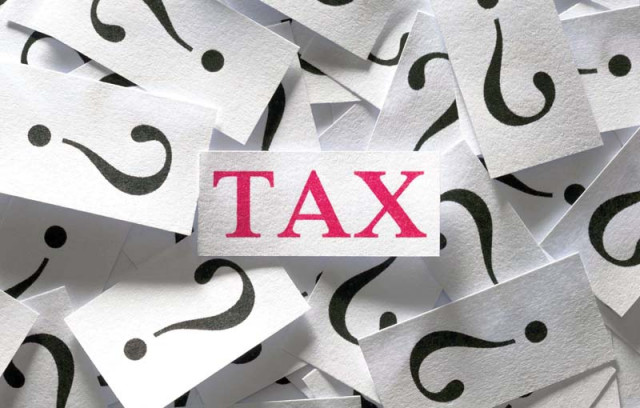Disproportionately: Taxation system not anti-poor but anti-middle class
Ruling political parties don’t take tax from their voters

Ruling political parties don’t take tax from their voters. PHOTO: FILE
Contrary to the popular opinion, Pakistan’s taxation system is not anti-poor; it is anti-middle class. The tax is unevenly urban and almost not-rural in nature.
According to the 2011 PIDE’s study authored by Durr-e-Nayab, the expanded middle class comprises 35% of the entire population and it is 54% of the urban population. The study also argues that the middle class is less susceptible to inflationary pressures and thus given persistently low CPI inflation in the last couple of years, the middle class must have grown.
Unlike the simplistic criterion of income, Nayab developed a composite index and considered education, occupation, income, lifestyle and housing as defining features.
The professions of wholesale, retail trade, hotels and restaurants, financing, insurance, real estate and business services, and social and personal services dominate the expanded middle class. They are part of the services sector that contributes 40% to taxes. These are mostly urban phenomena.
The rural economy contributes only 1% to the tax net. Thus, 99% of tax is largely urban, large part of which is borne by the industry and a smaller part by the services sector, though understandably a clear geographic demarcation of industry and services may not be possible.
But if the industry based in Karachi is the single most important contributor to the direct tax, then it confirms my hypothesis that taxes are largely urban phenomenon in Pakistan. There is an obvious caveat here. Since 60% of taxes collected are indirect, one can infer that these may be proportional to population. However, a little consideration clarifies. The consumption of goods, of both consumer and consumer durable types, mostly happens in urban areas where the growing middle class resides. Rural households depend to a large extent on their own production and their labour, which is out of the tax net.
Therefore, the popular argument that equates indirect taxes with regressive taxes and terms them anti-poor is not well-founded. Since indirect taxes are paid on consumption, the urban-based middle class bears the most brunt of indirect tax as well.
All burden on middle class
As both very poor and very rich are practically out of the tax net, almost entire tax net falls on the proverbial middle class. These are the people with regular jobs in urban firms, work in the government, are professional, run organised and formal business, and are prominent in trade bodies.

These are the people who bear the tax brunt disproportionately. Poor are out of direct tax net as they don’t earn enough and rich are either out of will or are under-taxed.
The line between politics and taxation is not so thin. So far, the PPP has remained rural-based which has only 1% contribution to tax. PML-N has traditionally drawn votes from the urban trading class and a host of personality-driven rural constituencies. More recently, it has also drawn votes from the urban low income.
Like PPP, it carefully does not take tax from its voters. These two parties have largely relied on other constituencies – mostly urban, middle classes. The politics of taxation by these two parties is very simple and rather crude: tax non-voting classes.
Representation in parliament
While the rural poor and urban elite are represented in parliament indirectly (patron-client) and directly, it is this urban middle class, which is largely un-represented.
PTI’s legislatures may contain some exceptions, however, their top leadership comes from the same socio-economic milieu.
The choice of projects which have been implemented in the last two years and one major programme which was implemented in the last PPP tenure are also revealing. The PPP’s Benazir Income Support Programme is for rural poor. The PML-N’s Metro Bus Service is for urban low income.
Contrastingly, the privatisation process which can create jobs for urban professionals is on the back burner. Thus, just like politics of taxation, politics of development is also anti-middle class. The state earns from them, but do not spend on them.
The formal and organised business sectors are disgruntled over the three budgets presented under this government.
The latest showdown on 0.6% withholding tax on banking transactions is also very revealing.
PML-N could not afford to make its voters unhappy and had to withdraw it. The most alarming fact is this: the number of tax filers over the last 10 years has actually been halved – we are down to 856,229 in 2014 from 1,143,414 in 2011 and around two million tax filers in 2006.
This is the biggest sign of no confidence of the middle class on an extortionist tax regime propelled by politicians.
The writer is the founder and executive director of PRIME Institute, an independent think tank based in Islamabad
Published in The Express Tribune, July 27th, 2015.
Like Business on Facebook, follow @TribuneBiz on Twitter to stay informed and join in the conversation.


















COMMENTS
Comments are moderated and generally will be posted if they are on-topic and not abusive.
For more information, please see our Comments FAQ